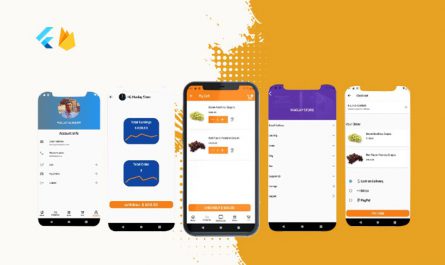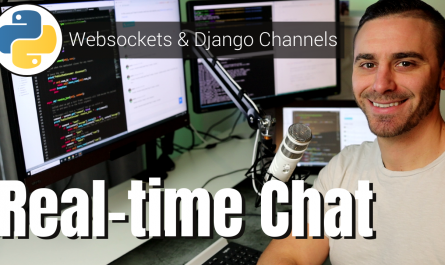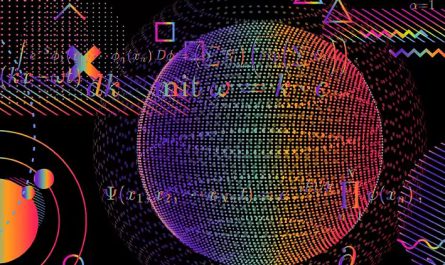
Description
“Bitcoin (BTC) price just reached a new ALL TIME HIGH! #cryptocurrency #bitcoin #bullish”
For you and me, it seems pretty obvious that this is good news about Bitcoin, isn’t it? But is it that easy for a machine to understand it? … Probably not … Well, this is exactly what this course is about: learning how to build a Machine Learning model capable of reading and classifying all this news for us!
Since 2006, Twitter has been a continuously growing source of information, keeping us informed about all and nothing. It is estimated that more than 6,000 tweets are exchanged on the platform every second, making it an inexhaustible mine of information that it would be a shame not to use.
Fortunately, there are different ways to process tweets in an automated way, and retrieve precise information in an instant … Interested in learning such a solution in a quick and easy way? Take a look below …
_____________________________________________________
What will you learn in this course?
By taking this course, you will learn all the steps necessary to build your own Tweet Sentiment prediction model. That said, you will learn much more as the course is separated into 4 different parts, linked together, but providing its share of knowledge in a particular field (Text Mining, NLP and Machine Learning).
- SECTION 1: Introduction to Text Mining
In this first section, we will go through several general elements setting up the starting problem and the different challenges to overcome with text data. This is also the section in which we will discover our Twitter dataset, using libraries such as Pandas and Matplotlib.
- SECTION 2: Text Normalization
Twitter data are known to be very messy. This section will aim to clean up all our tweets in depth, using Text Mining techniques and some suitable libraries like NLTK. Tokenization, stemming or lemmatization will have no secret for you once you are done with this section.
- SECTION 3: Text Representation
Before our cleansed data can be fed to our model, we will need to learn how to represent it the right way. This section will aim to cover different methods specific to this purpose and often used in NLP (Bag-of-Words, TF-IDF, etc.). This will give us an additional opportunity to use NLTK.
- SECTION 4: ML Modelling
Finally … the most exciting step of all! This section will be about putting together all that we have learned, in order to build our Sentiment prediction model. Above all, it will be about having an opportunity to use one of the most used libraries in Machine Learning: Scikit-Learn (SKLEARN).
_____________________________________________________
Why is this course different from the others I can find on the same subject?
One of the key differentiators of this course is that it’s not about learning Text Mining, NLP or Machine Learning in general. The objective is to pursue a very precise goal (Sentiment Analysis) and deepen all the necessary steps in order to reach this goal, by using the appropriate tools.
So no, you might not yet be an unbeatable expert in Artificial Intelligence at the end of this course, sorry … but you will know exactly how, and why, your Sentiment application works so well.
_____________________________________________________
About AIOutsider
AIOutsider was created in 2020 with the ambition of facilitating the learning of Artificial Intelligence. Too often, the field has been seen as very opaque or requiring advanced knowledge in order to be used. At AIOutsider, we want to show that this is not the case. And while there are more difficult topics to cover, there are also topics that everyone can reach, just like the one presented in this course. If you want more, don’t hesitate to visit our website!
_____________________________________________________
So, if you are interested in learning AI and how it can be used in real life to solve practical issues like Sentiment Analysis, there is only one thing left for you to do … learn with us and join this course!
Who this course is for:
- Anyone having an interest in Artificial Intelligence and NLP
- Anyone willing to learn what is Text Mining and how it can be used
- Anyone willing to learn how to easily predict the sentiment of any tweet
Requirements
- A basic Python IDE (Spyder, Pycharm, etc.) or a web-based Python IDE (Jupyter Notebook, Google Colab, etc.). Google Colab will be used by default to teach this course.
- General knowledge of Python, as this is a course about learning Sentiment Analysis and Text Mining, not properly about learning Python.
Last Updated 2/2021
Download Links
Direct Download
Applied Text Mining and Sentiment Analysis with Python.zip (935.0 MB) | Mirror
Torrent Download
Applied Text Mining and Sentiment Analysis with Python.torrent (56 KB) | Mirror
Source: https://www.udemy.com/course/applied-text-mining-and-sentiment-analysis-with-python/


